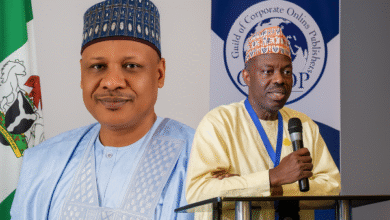Halal products certification will boost Nigeria’s agricultural sector – minister

Amb. Mariam Katagum, the Minister of State, Industry, Trade and Investment, said that Halal product certification would stimulate investment across Nigeria’s agricultural sector and create wealth for the nation.
Katagum said this at the inauguration of a 14-member Technical Committee on the Development of a Roadmap and Operational Framework for Halal Certification in Nigeria.
The minister said there was the need for Nigeria to key into the huge and profitable economy of halal market, adding that certification would give Nigerian-made-products a boost in the global market.
Halal products are products that meet all the regulations on food safety, hygiene and sanitation, with composition that does not contain a single ingredient that is forbidden by Muslims.
According to her, there is an increasing demand for halal certified products globally, especially among the large Muslim population in the Middle East, North Africa, others which presented a lucrative chain for the food market.
“As at today, the global consumer base of halal products is estimated to be about 1.9 billion Muslims across 112 countries and the halal market is estimated to be worth 2.6 trillion U.S. dollars.
“The halal market is a huge and profitable segment of the economy. We cannot, therefore, ignore the importance of assuring our local and international consumers that our products are halal certified.
“Such certification will give our products a boost in local and international markets. It is aimed at increasing patronage and consumption of products coming from Nigeria not only by Muslims but also non-muslims,’’ she said.
“The ministry proactively decided to establish a committee to address the lack of synergy in instituting Halal standards in the country as well as the inability of Nigeria to tap into the halal global market.
“All hands must be on deck to ensure that Nigeria takes advantage of the huge halal market for maximum benefit.
“Members of the technical committee have been carefully selected to develop the operational and strategic framework for Nigeria’s halal certification process and make Nigeria a hub for halal products in Africa,’’ she said
Katagum, therefore, advised members of the committee to diligently carry out their assignment, so as to deliver suitable recommendations that would drive the policy thrust to strengthen Nigeria’s halal sector.
Mrs Evelyn Ngige, the Permanent of the ministry said inauguration of the technical committee was a demonstration of the ministry’s commitment toward ensuring that Nigeria benefited from the halal industry.
Ngige, represented by the Director, Commodities and Exchange in the Ministry, Mr Sulieman Audu, said there was the need to take advantage of halal products and services for export to increase foreign exchange earnings.
She said that the inauguration of the committee was imperative as the ministry acknowledged that existing challenges abound due to lack of halal certifications on our products, thereby, restricting the nations benefits.
According to her, this is in line with the economic diversification agenda of the present administration, seeking to develop the non-oil sector.
“We need to take advantage of the halal products and services sector for export to increase our foreign exchange earnings, create additional jobs and wealth for the nation.’’
She said that the committee was committed to diligently carrying out its assignment toward elevating Nigeria’s position among halal exporters globally and most importantly in Africa.
Ngige assured the committee of the ministry’s support in ensuring that the committee accomplished its work without hindrance.
Mr Nour Hanga, chairman of the committee, commended the ministry for its effort to develop a robust halal industry in Nigeria.
Hanga said that the global demand for Halal products witnessed continued growth and could offer huge benefits for Nigerian businesses.
“In many parts of the world today, consumers do not just buy food items, but buy natural, organic halal products for health, and safety among others.
READ ALSO:https://brandeconomy.com.ng/opec-quota-how-to-increase-nigerias-oil-production-expert/
“The global halal food market recorded sales of 1.9 trillion dollars in 2020, and is expected to reach 2.9 trillion dollars by 2024.
“This growing market is without borders and thus stands ready to do business with Nigeria,’’ he said
The News Agency of Nigeria (NAN) reports members of the committee were drawn from key Ministries, Departments and Agencies (MDAs) and the Organised Private Sector involved in the Halal Value – Chain.
The ministries are Industry, Trade and Investment, Agriculture and Rural Development, Standards Organisation of Nigeria (SON), Nigerian Export Promotion Council (NEPC), Small and Medium Enterprises Development Agency of Nigeria (SMEDAN).
Others are the National Agency for Food and Drug Administration and Control (NAFDAC), the Federation of Agricultural Commodity Association of Nigeria, and the Nigeria Supreme Council for Islamic Affairs.
The rest are Halal Certification Authority, Halal Compliance Food Safety Limited, Jaiz International Halal Certification and Halal Certification Centre Nigeria Limited.
(NAN)











